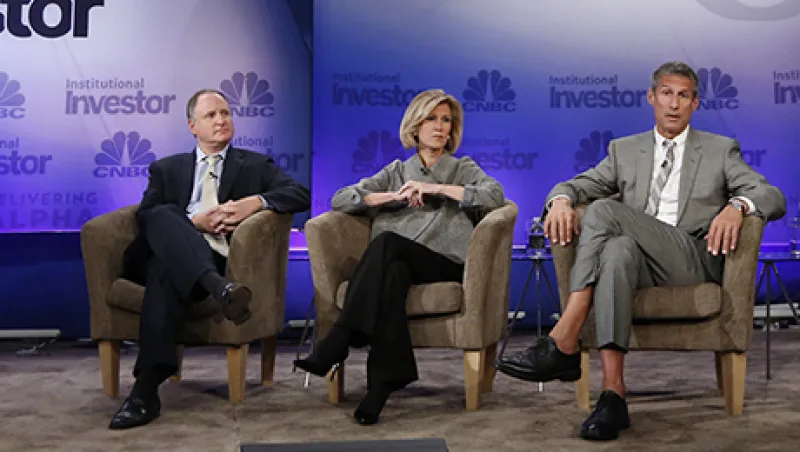
DELIVERING ALPHA -- Pictured: (l-r) CNBC's Andrew Ross Sorkin moderates the Global Opportunity panel with Eric Mindich, Chief Executive Officer and Founder, Eton Park Capital Management; Mary Callahan Erdoes, Chief Executive Officer, J.P. Morgan Asset Management; Richard Perry, Chief Executive Officer, Perry Capital; and Christopher Ailman, Chief Investment Officer, California State Teachers' Retirement System at the 5th annual CNBC Institutional Investor Delivering Alpha Conference on Wednesday, July 15, 2015 at the Pierre Hotel in New York -- (Photo by: Heidi Gutman/CNBC)
CNBC/Heidi Gutman/CNBC

